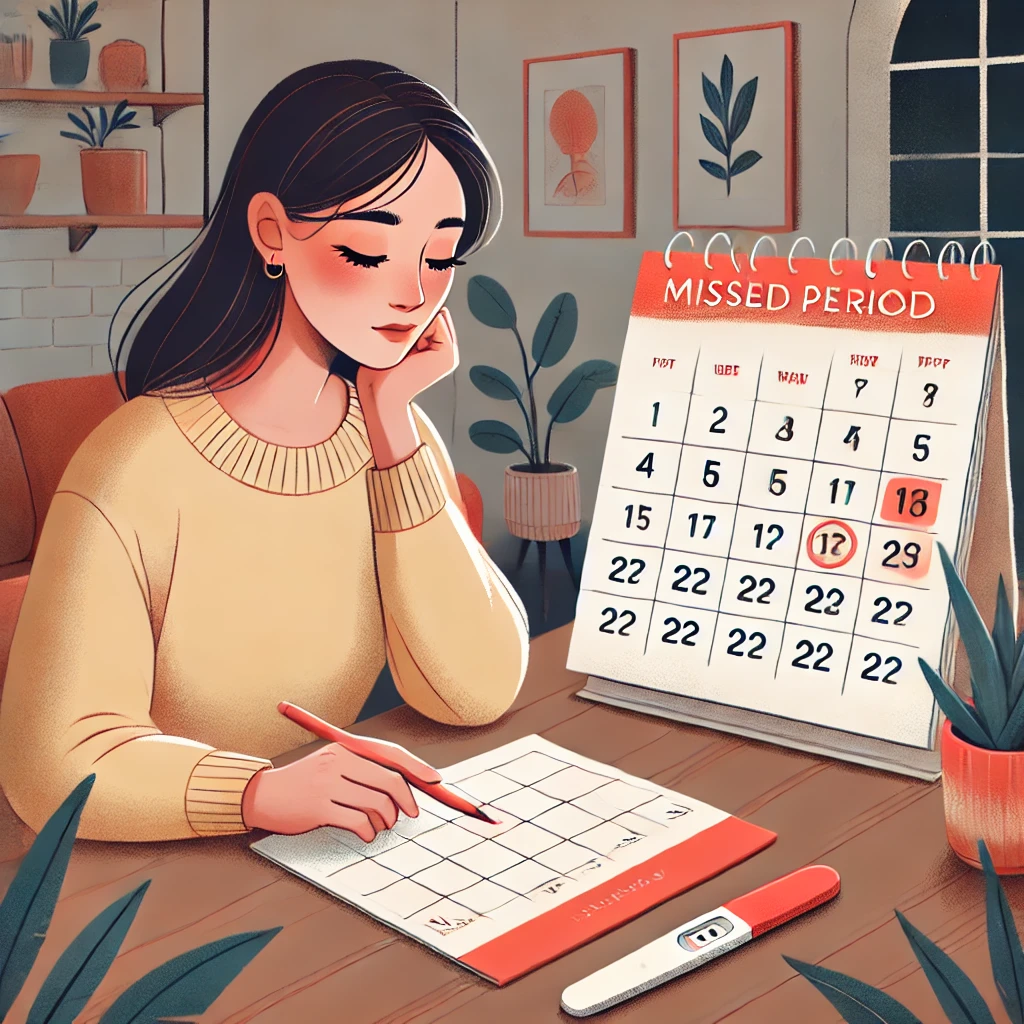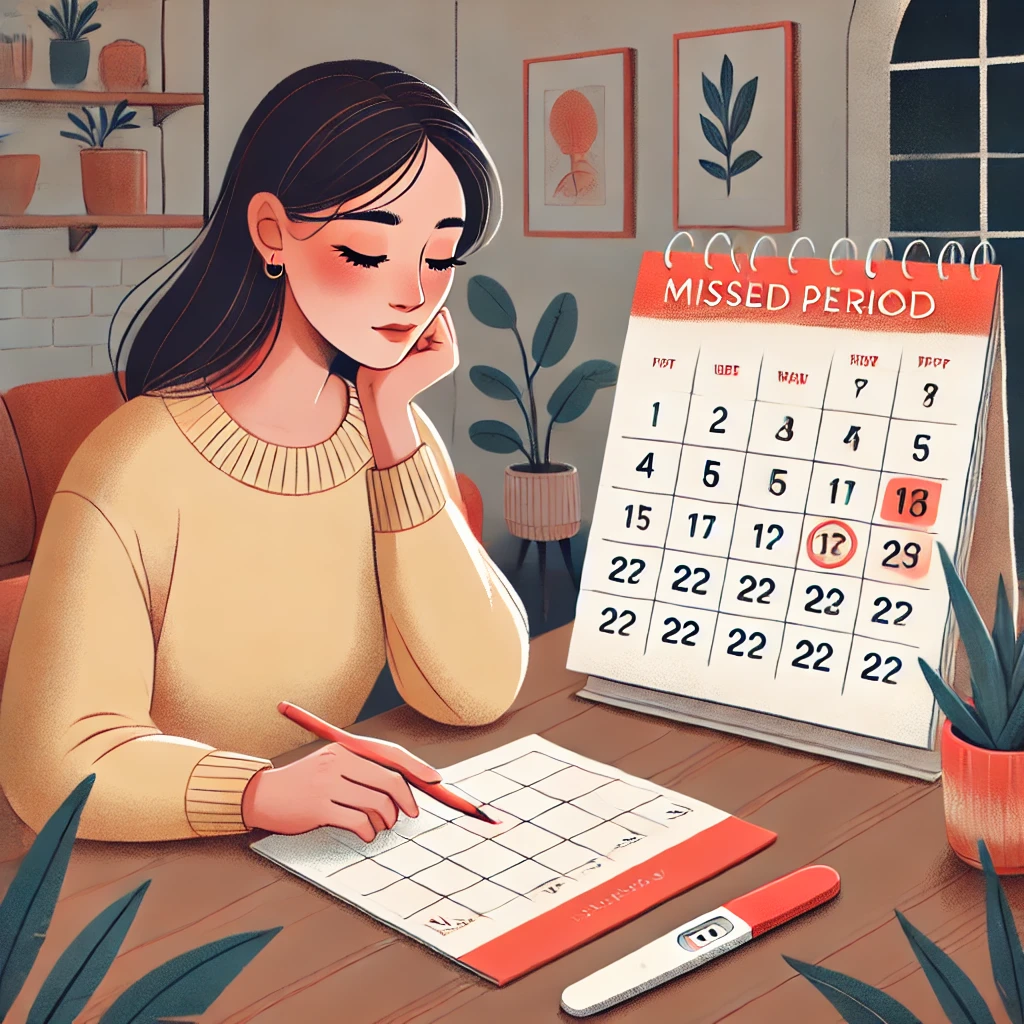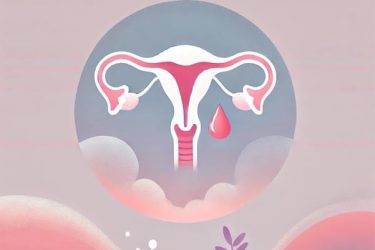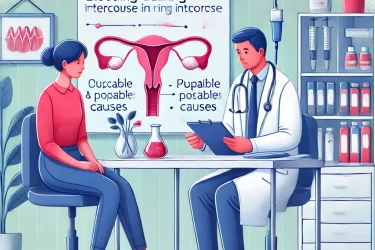1 Month Late Period But Not Pregnant: 9 Causes
1 Month Late Period But Not Pregnant: Causes and Solutions
A one-month late period often makes many women worry, especially when thinking about the possibility of pregnancy. However, there are many different causes of a late period that are not due to pregnancy. This article will help you better understand the causes that can cause this condition, thereby finding appropriate solutions to regulate and maintain a normal menstrual cycle.
Causes of a 1-Month Late Period But Not Pregnant
Stress and Pressure
Stress is one of the most common causes of a late period. When you experience prolonged stress or pressure from work, study, or family, your body will produce stress hormones such as cortisol. Cortisol can affect the production of reproductive hormones and disrupt your menstrual cycle.
Sudden Weight Changes
Sudden weight gain or loss can change your menstrual cycle. When your body experiences major changes in weight, your hormone levels are also affected, leading to missed or irregular periods.
Diet and Nutrition
An unbalanced diet, malnutrition, or strict dieting can affect your reproductive health. Deficiencies in important nutrients such as iron, zinc, and B vitamins can disrupt your hormones and delay your periods.
Polycystic Ovarian Syndrome (PCOS)
Polycystic ovary syndrome (PCOS) is a common medical condition that can disrupt your menstrual cycle. PCOS is often accompanied by symptoms such as weight gain, hair loss, and acne. If you suspect you have PCOS, consult your doctor for timely diagnosis and treatment.
Thyroid Disorders
The thyroid gland plays an important role in regulating hormones in the body. When the thyroid gland is not functioning properly, such as hypothyroidism or hyperthyroidism, it can disrupt your menstrual cycle. A thyroid function test can help you determine the cause and treat it promptly.
Medication Side Effects
Some medications, such as birth control pills, antidepressants, and nonsteroidal anti-inflammatory drugs, can cause a missed period as a side effect. If you have just started a new medication and notice that your menstrual cycle is disrupted, discuss it with your doctor to find out the cause and solution.
Hormonal Disorders
Hormonal disorders are another common cause of missed periods. Hormones such as estrogen and progesterone play an important role in the menstrual cycle. When the body produces too much or too little of these hormones, it can lead to missed periods or irregular periods.
Perimenopause
Perimenopause is the stage before a woman enters menopause, which usually begins in her 40s. During this stage, the body begins to produce less estrogen, which can cause irregular periods and possibly missed periods.
Unhealthy Lifestyle
Unhealthy lifestyle habits such as smoking, excessive alcohol consumption, and lack of sleep can also affect your menstrual cycle. These habits can reduce your overall health and cause hormonal imbalances.
Signs and Symptoms
When your period is 1 month late but there are no signs of pregnancy, you may experience some accompanying symptoms. These symptoms can help you identify the specific cause and find the right solution.
Lower Abdominal Pain
Lower abdominal pain is a common symptom of a missed period. It can be a sign of hormonal imbalance or reproductive health issues such as PCOS or thyroid disorders.
Sudden Weight Gain or Loss
Sudden weight gain or loss can be a sign of nutritional or hormonal problems. If you notice a significant change in weight along with a missed period, talk to your doctor about your overall health.
Fatigue and Weakness
Fatigue and weakness can be a sign of nutritional deficiencies, thyroid disorders, or chronic stress. If you feel tired for no apparent reason, get checked out to find out what is causing it.
Mood Changes
Mood changes, such as anxiety, depression, or irritability, can be related to hormonal disorders. Managing stress and maintaining a healthy lifestyle can help improve your mood and regulate your menstrual cycle.
Solutions and Adjustments
Stress Management
Stress management is one of the important solutions to regulating your menstrual cycle. You can try techniques like meditation, yoga, or deep breathing to reduce stress and improve your overall health.
Maintain a Healthy Weight
Maintaining a healthy weight by eating a balanced diet and exercising regularly can help regulate your menstrual cycle. Avoid sudden weight gain or loss to avoid disrupting your hormones.
Balanced Diet
A balanced, nutritious diet with adequate vitamins and minerals can help maintain reproductive health. Include foods rich in iron, zinc, and B vitamins to improve your menstrual cycle.
Regular Health Checkups
Regular health checkups can help detect reproductive health and hormone-related problems early. Testing thyroid function, ovarian function, and hormone levels can help identify the cause and treat it promptly.
Use Medications as Prescribed
If you are taking medications that may disrupt your menstrual cycle, discuss them with your doctor to find an alternative. Do not stop taking your medication without your doctor’s approval.
Increase Physical Activity
Increasing physical activity through regular exercise can help improve blood circulation and regulate your menstrual cycle. Choose gentle activities such as walking, yoga, or swimming to maintain overall health.
Treat Related Conditions
If you have conditions such as PCOS or thyroid disorders, follow your doctor’s treatment instructions. Proper and timely treatment can help regulate your menstrual cycle and improve your reproductive health.
When to See a Doctor?
Prolonged Late Period
If your period is late for more than 3 months without any signs of pregnancy, see your doctor for a check-up to determine the cause.
Severe Associated Symptoms
If you experience severe accompanying symptoms such as severe abdominal pain, unusual bleeding, or sudden weight loss, seek medical advice immediately.
Reproductive Health Concerns
If you have concerns about your reproductive health or are having difficulty conceiving, see a specialist for advice and treatment.
Regular Check-ups
Have regular check-ups to ensure that your body is functioning properly and that there are no problems related to your reproductive health and hormones.
Conclusion
A missed period for a month without any signs of pregnancy can be caused by a variety of factors, from stress, weight changes, and an unbalanced diet to medical issues like PCOS and thyroid disorders. Understanding the causes and accompanying symptoms will help you find the right solution to regulate your menstrual cycle and maintain your overall health.
Always pay attention to your body and consult your doctor when necessary to ensure that your reproductive health and hormones are maintained at their best. Managing stress, maintaining a healthy weight, eating a balanced diet, and increasing physical activity are important measures to keep your menstrual cycle regular and stable.
Wishing you good health and a balanced life!
Sito web: https://wiliit.com/
Pagina dei fan: https://www.facebook.com/wilimedia.en
Posta: Admin@wilimedia.com












